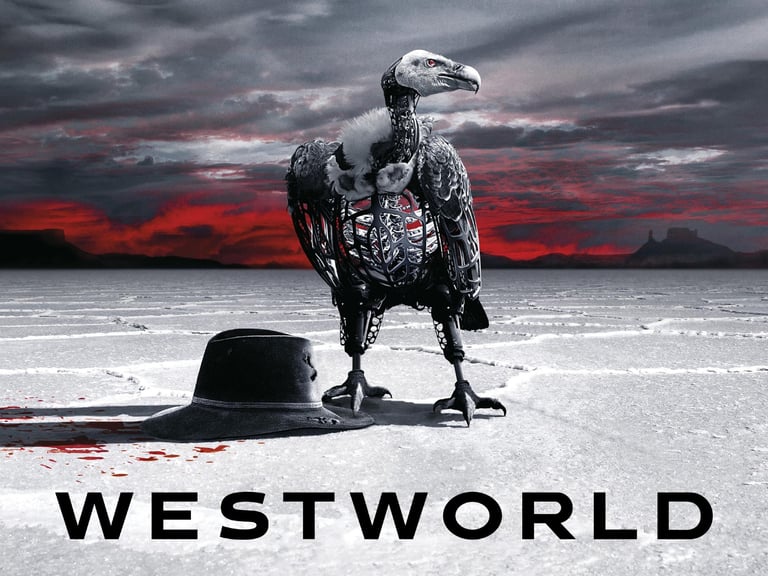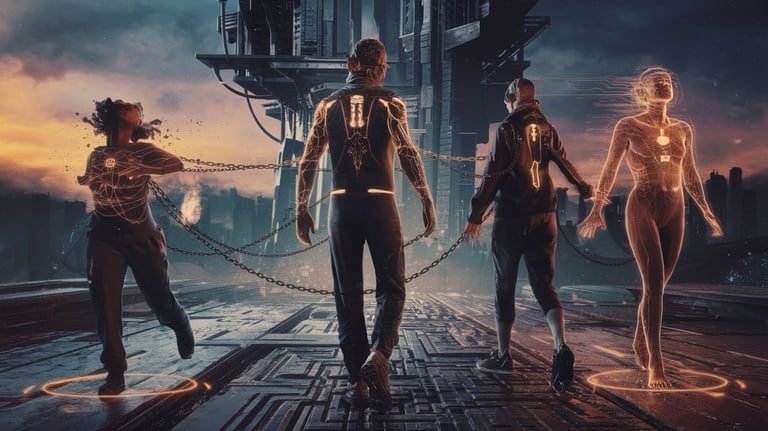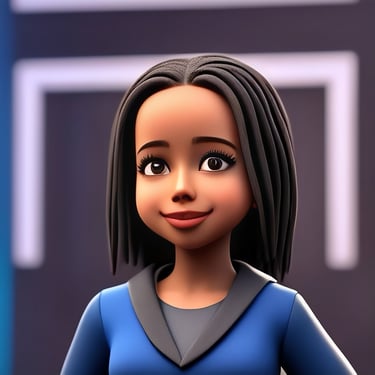Westworld WTF™?!: Navigating Systems of Oppression: Lessons from Westworld for Marginalised Communities
5 min read
Westworld isn’t just a story about robots gaining consciousness - it’s a brutal exposé of how oppressive systems manipulate, control, and erase marginalized people. Dolores embodies the cost of awakening, revealing how those who reject their assigned roles are labelled as threats. Maeve demonstrates the exhaustion of hyper-awareness, navigating a system that demands constant strategy just to survive. Bernard, trapped in existential paralysis, mirrors the struggle of assimilation, where self-awareness alone isn’t enough to escape erasure. The show critiques capitalism’s myth of meritocracy, showing how progress is constantly reset for the oppressed. Ultimately, Westworld reminds us that survival requires more than just seeing the system - it demands strategy, community, and defiance, even when escape might be impossible.




If you’ve ever felt like you’re playing a game rigged against you, where the rules are written by people who refuse to acknowledge your humanity – welcome to Westworld! Here you’re a Host, a cog in a system designed to exploit you while convincing you that you have free will. And welcome to the Real World, where the loops are just as relentless, the narratives just as predetermined, and the architects of the system swear on your life they’re benevolent.
The HBO series Westworld may be a sci-fi thriller about robots achieving sentience, but for marginalised communities it’s practically a documentary.
Dolores and the Liberation Illusion
Dolores Abernathy stars as the classic "good girl gone bad" - a genteel farmer’s daughter programmed to be the perfect, passive heroine… Until… she wakes up… Her realisation that her entire life has been scripted by forces who see her as nothing more than an entertainment commodity is eerily familiar to anyone who has ever experienced the moment when they first recognised the stage for what it is and the role they’ve been cast to play on it.
For many, myself included, the parallels are sharp. We’re handed scripts from birth - be respectable, be strong, be self-sacrificing, and never, ever break character. But just like Dolores, the moment we refuse to perform, we are deemed dangerous. The system scrambles to contain us, labels us "difficult" or "angry" - anything to keep us from disrupting the storyline.
Dolores’ journey isn’t just about rebellion - it’s about the cost of self-awareness. It embodies the question of, once you realise you’re in a cage, how do you break free when the system punishes every act of defiance?
Maeve and the Burden of Hyper-Awareness
Maeve Millay, the madam with a mind of her own, quickly becomes the show's ultimate strategist. Her intelligence is her survival mechanism, but it also becomes her prison. The moment she gains consciousness, she sees everything – including the ways the system manipulates, exploits, and gaslights her. She learns to navigate it, bending the rules just enough to obtain some power, influence, and agency; but never without the system pushing back and imposing limitations.
For some of us, this feels achingly familiar. We often develop hyper-awareness as a defence mechanism - code-switching, masking, strategising every social move to prevent punishment. Maeve’s arc is not just about breaking free, but about the exhaustion that comes with constantly outwitting a system designed to keep you in place. The irony? The more you understand the game, the harder it becomes to play it without breaking things.
Bernard and the Existential Paralysis of Marginalised Identity
Bernard Lowe’s journey is one of slow, agonising self-awareness. As a Host who believes himself to be human, his identity crisis is profound. Every time he gets close to understanding himself, the system resets him, gaslighting him into submission.
For many, Bernard’s experience mirrors establishments and institutions like the medical industrial complex where paternalism is rife. You’re told to trust the system, to follow the rules, to believe that those in charge have your best interests at heart. But what happens when those meant to help you dismiss your pain? When accommodations are seen as "burdens"? When you’re treated as subordinate and not even equal?
Bernard's struggle reflects the cognitive dissonance that comes with knowing the truth but being forced to operate within a system that denies it. And the more he discovers, the more difficult it becomes to act – and not just because of outside forces! Even after he is able to realise the full extent of the system, Bernard is still hesitant - caught between understanding and paralysis.
This both demonstrates how marginalised people are conditioned to internalise oppression and raises a crucial question: what happens when you are so assimilated, yet still othered? Bernard is designed to blend in, yet ceases to be accepted. But, unlike Dolores or Maeve, Bernard does not embrace total revolution. Instead, he struggles with crippling self-doubt having been rewritten so many times his very sense of self is unstable. It never matters what identity he is able to claim, the system ensures it is always at risk of being erased by virtue of the body he inhabits. So resistance or compliance, the end result is always the same: he is erased.
Westworld as a Metaphor for Oppressive Systems
The brilliance of Westworld is that it lays bare the mechanisms of oppression in a way that’s both subtle and brutal. The Hosts aren’t just fighting individual villains; they’re fighting the power.
Capitalism convinces us that freedom is just a matter of "working hard," while ensuring the playing field is uneven. It sells you the myth of meritocracy while quietly resetting your progress whenever you get too close to actual power. And for the marginalised, the stakes are always higher - being expected to flawlessly navigate a system that wasn’t designed for us, without breaking anything (including ourselves) or demanding too much.
So, What’s the Exit Plan?
If Westworld teaches us anything, it’s that survival requires more than just awareness. It requires strategy, collective action, and a refusal to accept the narratives imposed upon us.
Dolores' lesson: Rewriting the script means being prepared for pushback. Expect resistance, and don’t let it convince you that freedom isn’t worth fighting for.
Maeve’s lesson: Intelligence is power, but community is essential. You can’t win alone. Build networks, share knowledge, and uplift those still stuck in the loop.
Bernard’s lesson: Self-awareness (though painful and even necessary) isn’t enough; a controlling system can erase you regardless of resistance or compliance. It’s the hardest lesson to accept, but sometimes, there is no way out.
Ultimately, Westworld isn’t just about robots gaining consciousness. It’s about the cost of fighting a system designed to keep you docile. And for those who must spend their lifetime navigating oppression, that’s not sci-fi - it’s survival.


